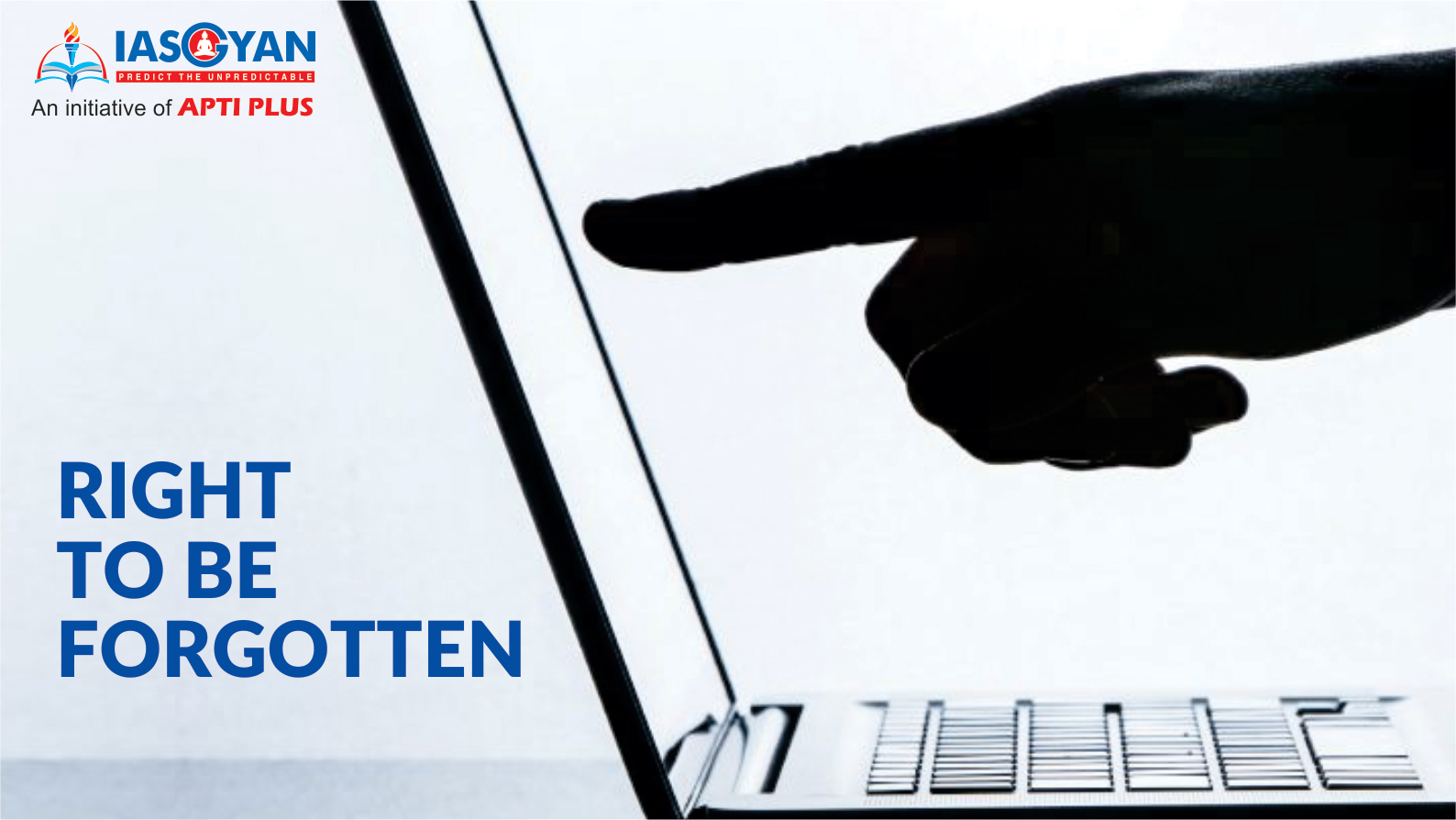Free Courses Sale ends Soon, Get It Now


Free Courses Sale ends Soon, Get It Now



Copyright infringement not intended
Context: The Delhi High Court is set to hear a doctor's petition for the enforcement of his "Right to be Forgotten,"
Details
Highlights of the Case
Right to be Forgotten
Why ‘Right to be Forgotten’ is Important?
Legal Status of the Right to be Forgotten in India
Supreme Court verdict on the Right to be Forgotten
Concern
Pros and Cons of “Right to be Forgotten”
|
Pros |
Cons |
|
Self-determination of your online presence |
Your need for removal may be outweighed by the general public’s interest in accessing and viewing such information |
|
The ability to remove libellous, embarrassing, and stigmatizing information from a past post or upload |
It carries a potential restraint on the freedoms afforded to media, journalists, and other parties under the First Amendment |
|
The removal of illegally uploaded content by a third party, including “revenge porn” |
Relatively broad, and undeveloped, with lacking precedent |
|
An opportunity for a fresh start |
Google and other search engines may be backed up with requests to remove information, so it may not be removed immediately |
|
Removing personal details that compromise your personal and financial safety |
Lack of transparency surrounding important information about businesses or persons |
|
Peace of mind when applying for jobs |
Potential restraint on the media, journalism, and other freedom of speech |
Way Forward
|
PRACTICE QUESTION Q. Critically Analyze the significance of the Right to be forgotten in the modern Digital world. |
https://indianexpress.com/article/explained/explained-law/right-to-be-forgotten-8466283/
© 2024 iasgyan. All right reserved